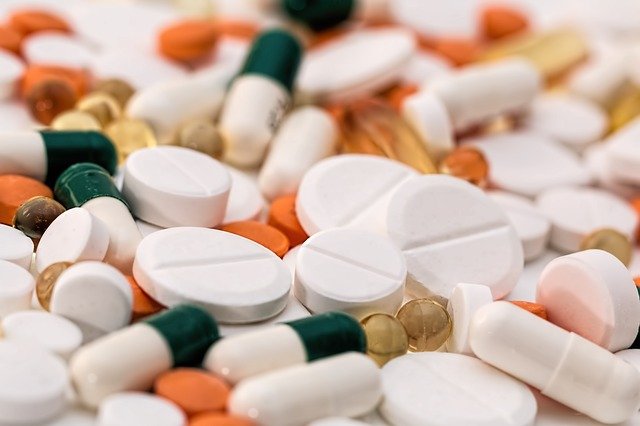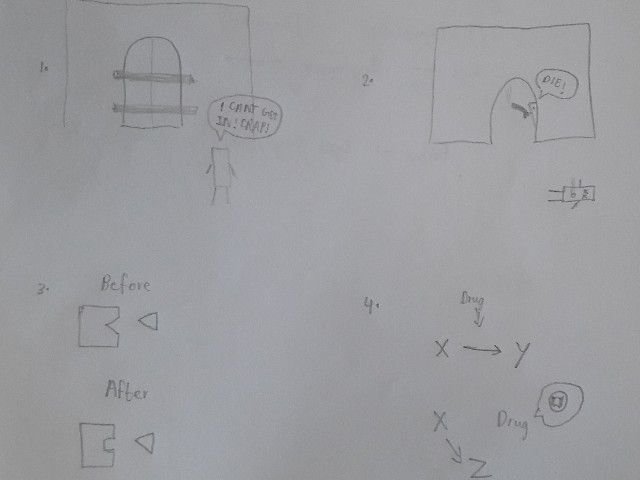As a student of medicine in his second year, I've started to spend more time in the hospital as part of my training. I see various cases daily and how they are treated (second year is still more of paraclinical subjects than clinical subjects but meh). And one problem that has been emerging everywhere is antibiotic resistance.
Everybody knows that many diseases are caused by pathogens like your not so friendly neighbourhood bacteria and viruses. Antimicrobials are basically chemical substances that either kill off the invading pathogen or slow their growth down significantly, thus saving your body. Antibiotics are a subtype of antmicrobials which targets bacteria.
Fun fact - This is why antibiotics should NOT be taken for your common cold; its caused by viruses thus making it ineffective.

Now resistance is a problem that was fairly obvious would arise. I mean, who likes to die? We had swords, we made armor and shields. We got guns, bulletproof vests were made. We got poison gas, gas masks were made. The same goes for our pathogens. They won't take it lying down.
Now how do they become resistant? Well, by one of the following ways:
Changing cell wall permeability
The drug needs to get into the cell first if it is to act. Some bacteria change the nature of their cell wall to lock out the drug, which works very much like you locking your doors so no one unwanted gets in.Changing the drug structure
A more aggressive move but if it works, its cool. The bacteria produces an enzyme which alters the chemical structure of the drug rendering it useless.Changing the targets
Once within the cell (and intact), the drug binds to a specific target on which it acts. Now if the target structure is changed, the drug cannot bind there anymore and is useless. Just like you changing your phone password after that someone who you do not want peeking into your phone finds it out.Altered metabolism
Some drugs act upon a particular step of metabolism. In this case, the target step is somehow bypassed. Again the drug is rendered ineffective. Its like you waiting along a road to meet someone but that person suddenly changes route that day.

Why should you care though?
This problem makes the process of treating your diseases way more complex. What drugs were used years back are highly ineffective now thanks to resistance. Even as newer drugs are discovered (which is a very painful process taking up a lot of time and money), more drugs are being obsolete. Some diseases which could be treated easily may progress to more advanced and potentially fatal stages due to resistance.
What can be done?
There are various things that we can do to fight resistance, although we only delay the inevitable. What can you, as a concerned person, do?
-Hygienic practices should be maintained thus reducing the risk of contracting diseases.
-Antibiotics should be taken only for bacterial diseases.
-Antibiotic therapy should be completed as prescribed; without skipping doses as many people do once symptoms subside.
-Irrational prescription of antibiotics/ demanding antibiotic prescription should stop.
In the end, there's only so much we can do. But every step matters, every contribution matters.
Constructive feedback is always appreciated.If you liked this article, do not forget to upvote and resteem. Follow me @stelmar for more.
Pic
Sketch by me
https://pixabay.com/en/headache-pain-pills-medication-1540220/
Sources
My lecture notes
http://www.who.int/antimicrobial-resistance/en/
https://www.cdc.gov/drugresistance/about.html
So much contained in few words. Thanks very much for these information provided.
It's nice post, informative, but not too compex. Very important subject, we need to be very careful :) Keep up :)
I can relate to some of that. Let me explain something that is endemic in my country: People going to buy antibiotics in the pharmacies without prescription and getting just almost everything they ask. Self diagnosis FTW. This increases the resistance considerably.
Jeez. We have that situation too. Fun part is, doctors are blamed for being a waste of time and money (consulting fees and blah blah) if they end up actually prescribing antibiotics.
Yes you just described the feel in my country and even mine partly. But that is because good doctors run away in other EU countries and the educational and financial system is a mess.